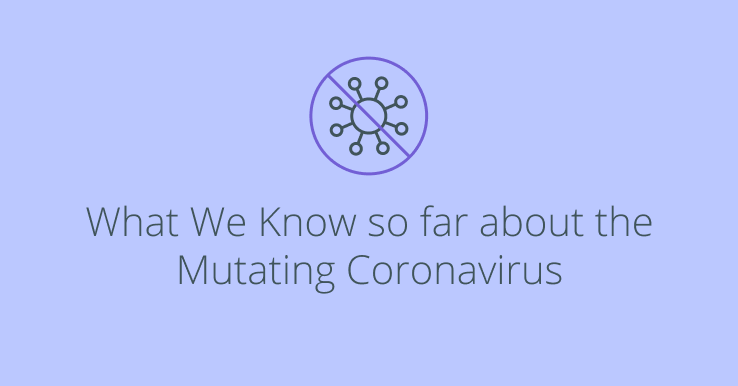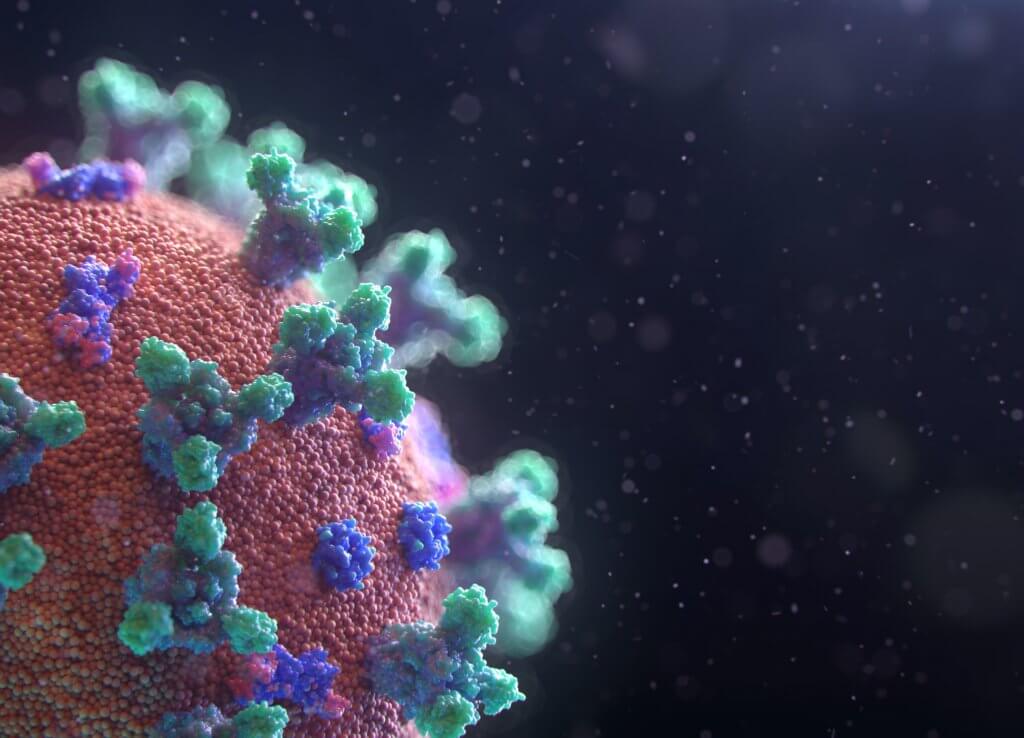As the pandemic stretches into 2021, two new COVID-19 variants have sprung up around the world: the first variant was identified in the UK and has likely been circulating there since September of 2020, and the second variant was identified in South Africa and has likely been circulating there since October of 2020. Although these variants emerged independently of each other, they have both caused concern among scientists. As researchers uncover more information daily, the experts at Eden Health weigh in on what some of this news means for you and your employees.

What are the variants called?
The COVID-19 variant from the UK is known as 20B/501Y.V1 or B.1.1.7 lineage, and the variant from South Africa is known as 20C/501Y.V2 or B.1.351 lineage.
Have the variants been found in the US?
Public health officials first detected the B.1.1.7 variant in Colorado on December 28. The infected individual reported no travel history, suggesting that that mutation was already present in the local community. The strain has now been detected in other states such as California, Florida, and New York in addition to at least 33 other countries. The B.1.351 variant was first detected in South Carolina on January 28.
Is it normal for viruses to mutate?
Yes, mutations are natural for all viruses and occur as they replicate and spread. The novel coronavirus mutates regularly, acquiring around one new mutation in its genome every two weeks. Most mutations result in variants that do not change how the virus infects individuals, and some can even be harmful to the virus’ survival. However, other variants can make the virus spread more easily.
Are these variants more contagious than others?
Yes, some studies show that the B.1.17 variant has increased transmissibility. However, scientists are conducting lab experiments to determine if it truly is more infectious and by how much. In South Africa, the B.1.351 variant has quickly displaced others as the dominant form of the virus, accounting for the majority of new cases in the area. While more data is needed, this may suggest more efficient and rapid transmission. The strain has also been linked with a higher viral load, or a higher concentration of virus particles in the infected individual’s body, which could contribute to elevated levels of transmission.
Nevertheless, precautions like wearing a mask, hand washing, and social distancing will continue to slow the spread of all variants of the virus.
Are the variants more severe or deadly than others?
There is currently no evidence that shows these strains result in more severe symptoms or a higher risk of death. If they are more contagious though, the increased number of infections will cause a burden on our already overworked healthcare system.
Will the COVID-19 vaccines still be effective against the variants?
The Pfizer and Moderna vaccines are believed to still be effective against the new variants, and the two manufacturers are currently conducting further tests to ensure their efficacy. If needed, the mRNA technology enables scientists to easily tweak the vaccine to target new variants. BioNTech’s CEO, Ugur Sahin, even stated that a new vaccine could be created in as little as six weeks if required, although the authorization and distribution could take much longer.
Will individuals with these variants test positive using existing diagnostic tests?
To date, there is no evidence to suggest that the variants can evade diagnostic tests. Because PCR tests utilize several targets to detect the novel coronavirus, the test will still yield an accurate result even if a mutation affects one of those PCR targets.

Because these two variants appear to spread more rapidly, we need to do everything in our power to slow the transmission. While vaccination will certainly help, the complex rollout process of the existing vaccine supply will not significantly reduce the spread in the short term. So what can you and your employees do if you’re feeling helpless right now? It’s proven that wearing masks, socially distancing, and washing your hands curb the impact of all variants of the novel coronavirus. Frequent COVID-19 monitoring and testing will also be essential tools to protect your workforce. In the meantime, we will keep you updated with more information on the pandemic.
Disclaimer:
This information is based on current resources available and is subject to change. This document and its contents are provided for informational purposes only, and not intended to be, and should not be understood or treated as, a substitute for professional medical advice around COVID-19, its risks or symptoms, or to take the place of any local, state and national laws and guidelines around COVID-19. Always seek the advice of a physician or other qualified health provider with any questions you may have regarding a medical condition.





